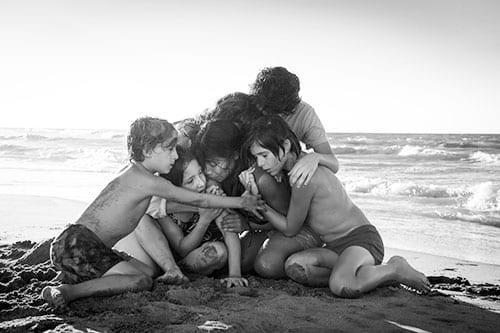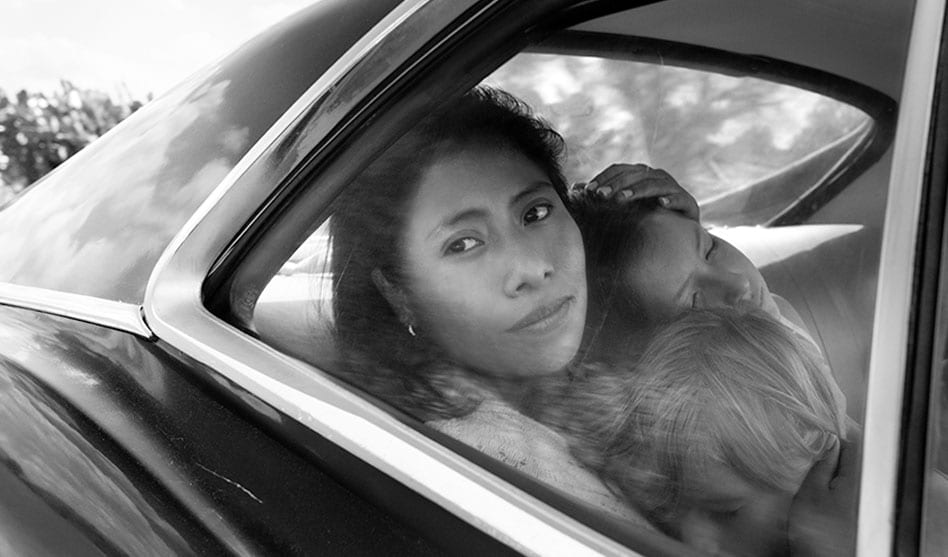Visionary filmmaker Alfonso Cuaron goes retro with the amazing ‘Roma’
ARNOLD WAYNE JONES | Executive Editor
jones@dallasvoice.com
Alfonso Cuaron is probably as responsible as any current filmmaker, other than Spielberg, Cameron and perhaps Ang Lee, for helping steer us toward the limits of moviemaking. With Children of Men, which combined a documentary style with seamlessly processed long takes, and then Gravity, the near-space thriller that won him an Oscar, he has in just a handful of films demonstrated a forward-looking sophistication.
So you might be surprised to realize his newest film, Roma, is actually by him. It looks backward in almost every way: It’s in black-and-white in the first instance. It doesn’t rely on any stars. And its lopey, studied slowness vigorously conjures the films of the Italian neorealists (De Sica, Rossellini, early Fellini and Visconti). And it is brilliant.
 It comes as a shock to me, too. Critics think of classical neorealism, which arose as a reaction to fascism in the wake of Italy’s devastation in the years immediately following World War II, as a point in time — one that paved the way for future movements (the French nouvelle vague, India’s “parallel cinema,” Britain’s “kitchen sink” dramas, and less directly, the American cynicinema of the 1970s), but which ended. Maybe mockumentary and found-footage films owed a nod to neorealism, but no one has seriously attempted to capture that moment again?
It comes as a shock to me, too. Critics think of classical neorealism, which arose as a reaction to fascism in the wake of Italy’s devastation in the years immediately following World War II, as a point in time — one that paved the way for future movements (the French nouvelle vague, India’s “parallel cinema,” Britain’s “kitchen sink” dramas, and less directly, the American cynicinema of the 1970s), but which ended. Maybe mockumentary and found-footage films owed a nod to neorealism, but no one has seriously attempted to capture that moment again?
But Roma does it. (Even the title is almost certainly a nod to the neorealist classic Rome, Open City.) Cuaron lulls us into the situation. The film opens with a still shot of what we eventually realize is a tile floor. As the camera begins to move, you subtly realize it almost never stops moving in rich, wide-screen panoramas, while action takes place within the mise-en-scene. We’re literally immersed in the world of an upper-middle-class family living in the once-tony-but-still-elegant Roma neighborhood of Mexico City in 1970. The live-in maid and nanny, Cleo, takes care of the four children of Sofia and her absent, controlling husband Antonio. Cleo quietly endures the demanding expectations placed on her and the minor assaults on her dignity, and carves out dates with Fermin, an ambitious young man. When Cleo becomes pregnant, it triggers a flood of regret, hope and confusion, as her own pending role as a mother contrasts with her role of de facto maternal figure to the young kids.
But Cuaron doesn’t broadcast to us what his point is, or even his point of view (that moving camera helps). When you think it will be a coming-of-age story, it changes gears; as you settle into the idea that it will become a melodrama, he inserts sly political commentary. In each frame, he painstakingly creates moments, played out with unrushed verisimilitude and long shots that breathlessly conjure a period of personal and social unrest, played out over one year, that is both universal and specific. As plot-heavy potboilers go, there’s not much going on here. But for fans of serious cinema, it’s a staggering achievement.
Now playing at the Magnolia; Roma will debut on Netflix on Dec. 14.













